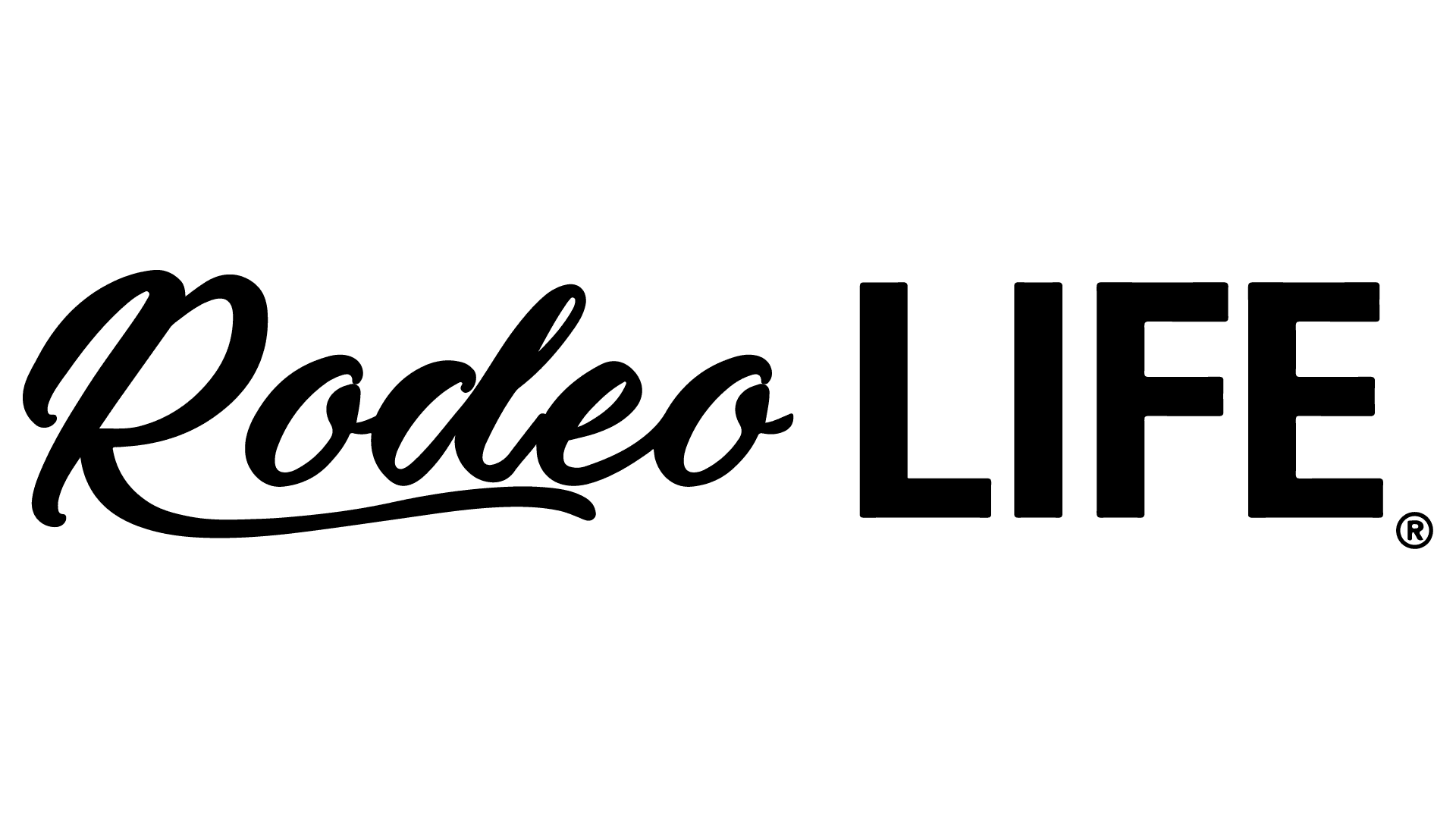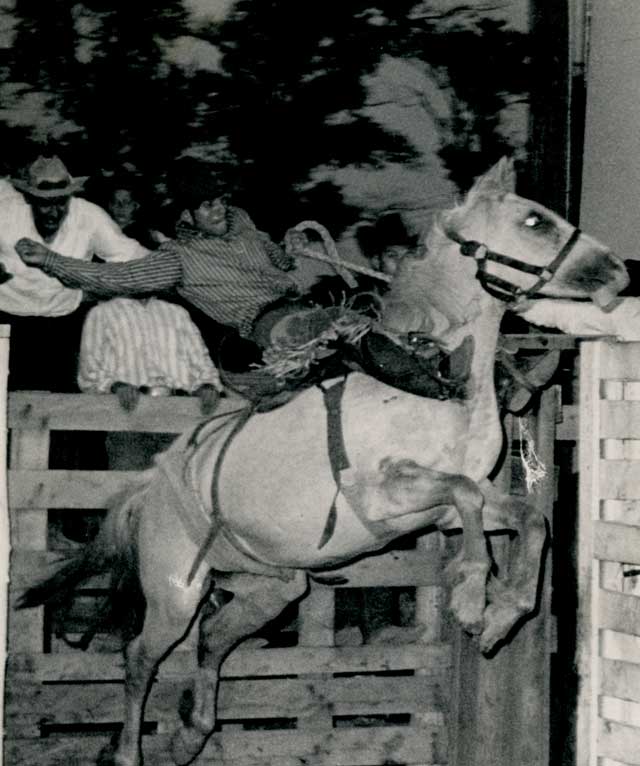Roland ‘Butch’ Tirelli was born January 14, 1941 in the Knickerbocker Hospital in New York City to Rachel Lopez and Frank Tirelli. Butch grew up in Brooklyn. Although his father was not in his daily life, he did have an ‘off and on’ relationship with him. Butch’s mother married a man named Cohen when Butch was just a toddler. Cohen was a good father, but money was scarce. Butch’s mom saved her pennies to be able to give Butch dance lessons.
At age 12, Butch and his mother were leaving the CBS Studio 54 Dance Studio in New York City; they were headed home by way of the subway, when Butch saw a marquee advertising the Madison Square Garden Rodeo. ROY ROGERS — RODEO – 200 COWBOYS!! Butch excitedly said to his mom, “Mom, mom! We gotta go see that!” She told him she didn’t have money for a ticket. They passed by the Belvedere Hotel, across the street from Madison Square Garden. Butch saw dozens of cowboys going across the street from the Belvedere and entering the Garden. One cowboy, in particular, stood out – he wore a purple shirt and had initials, C. T. on his denim jacket.
Being from Brooklyn, Butch walked up to the cowboy and said, “Hey, I’ve never been to a rodeo. Can you get me a ticket?”
The cowboy grinned, reached in his back pocket and handed him two tickets and said, “Here kid, have a good time!”
Butch was thrilled!
Although the seats were up in the top of the Garden a man sitting next to his mother offered Butch his binoculars so he could see the cowboys ‘up close and personal’. Butch never went to another dance lesson. He was hooked! He was going to be a cowboy – NO MATTER WHAT IT TOOK!
Young Butch went to all the Saturday afternoon cowboy movies. He watched how they walked, how they sat on their horse, and how they held their reins. He secretly practiced ‘holding reins’ with his belt.
In 1954, he saw an advertisement in the newspaper for a horse for sale. Butch asked his mom if he could buy it – the price of the horse was $125.
“Go ask your dad, Butch,” she said.
Although he seldom saw his dad, he was hesitant — but this was important. Surprisingly his dad handed over $125. Butch worked very hard to get the money to be able to feed and take care of his horse, Melody. He got up at 4AM to assist an Italian man groom his horse before he went to deliver ice. He also worked at the hack stables. Eventually he moved Melody to Bergen Stables.
One of the boys he met at Bergen Stables was Joe McBride who also had plans of being a cowboy. Joe introduced Butch to the Black Diamond Wild West Show that put on performances in the area. Joe worked for them doing odd jobs. Butch hoped that he might get a job with them, and be able to ride some of the stock. The day finally came when Butch got a chance to ride a bull in a performance and he was ready — he thought.
When the time came, he asked, “Hey Joey, how do I get off?”
Joe told him, “Just let go.”
Butch admits it was a little wilder than he anticipated. He landed on his head.
Sixteen year old Butch and his friends spent hours at Bergen Beach Stables in Brooklyn. In fact, they called a building on the grounds their ‘clubhouse’. It even had a television set. One day the kids were all watching the Cowtown New Jersey Rodeo. Atomic Power, one of their best bulls just bucked a rider off when his friend said, “Butch, I’ll bet you could ride Atomic Power.”
His friends had never been able to throw Butch off the barrel they had tied between the trees to practice their ‘bull riding’.
His friend’s statement made him think about it. He called Cowtown New Jersey and when the secretary answered the phone Butch said, “I want to ride Atomic Power.”
The secretary’s answer was, “You have to draw him.”
Innocently young Butch didn’t realize what she meant by ‘draw him’. He thought she meant he had to take a pencil and draw a picture of Atomic Power.
He responded, “I don’t want to draw him, I want to ride him!”
The secretary finally realized he was a kid and encouraged him to come to Cowtown and enter the bareback event instead. And that is what he did. According to Butch he did OK.
There were several western-style towns around New York for entertainment. In 1958 he went to ‘Dodge City’, on Long Island where he met Colonel Jim Eskew for the first time. Another show in New Jersey called ‘Cowboy City’ he often enjoyed. He met real practicing cowboys and asked lots of questions about riding broncs and bulls.
By 1959 the Black Diamond Wild West Show was back in Staten Island. Jack Jackson, head cowboy, was a steer wrestler and bronc rider that had previously worked for Colonel Eskew. He hired Butch and told him to get on as much stock as he could. But when Jackson was handing out paychecks, at the end of show at Staten Island, when he got to Butch, he closed the cash box.
Butch asked him why he didn’t get paid, Jackson said, “I’ll kill you off in two weeks.” Butch knew he wasn’t very big, he only weighed 110 pounds, but he knew he could do whatever he was asked to do. He was so mad and said to Jackson, “Hey old man, I’ll piss on your grave!”
Instead of being offended Jackson just grinned and handed him $10 and directions to get to Syracuse, New York, in time for their next ‘gig’.
When Butch realized he was being hired he asked how was he suppose to get there, Jackson answered, “See, you’re doing it all ready!”
Butch found that they were loading the bucking chutes on wheels and going to haul them behind a vehicle to Syracuse. He hopped in and headed north.
Butch’s friend, Joe McBride, gave him wise advice when he started working with the wild west shows: “You have to buy a loaf of Wonder Bread and some peanut butter and jelly and some ‘rodeo chickens’ (bologna) and carry it in your duffle bag – you never know if you’re going to get paid or not in these wild west shows.”
Cowboys from the east often travel back and forth from New York to Florida to rodeo, depending on the time of year. Butch was no different, and went to John Evans’ ranch in Florida. He met Red Wilmer there, and Red offered to let Butch use his Severe-made bronc saddle, to ride at the Webster (Florida) rodeo. Butch won the bronc riding on that saddle. Butch won the bareback riding and bull riding at that rodeo as well as fought bulls.
When Butch went to California he worked on Andy Jauregui’s ranch. He rode some bulls Andy had chosen to go to the National Finals. Years later Butch, who had worked as a stunt man, met Bobby Jauregui, Andy’s great-nephew who was also a stunt man, and relayed this story. Jauregui said, “I grew up hearing about this little New York guy that rode those bulls – so you’re the one!”
Butch also travelled the rodeo circuit with Buddy Heaton, the bullfighter and funnyman, from one side of the country to the next. Buddy was known for his antics and creativity in and outside the arena. Butch admitted he learned a lot of do’s and don’ts from this experience.
Although Butch was doing OK as a roughstock rider, he found he enjoyed the producing end of rodeo and wild west shows, too. Because he was of Puerto Rican descent Gerry Partlow, a producer of wild west shows, sent Butch to Puerto Rico to ‘make a deal’ to produce a rodeo there. Butch, who didn’t hesitate, did make a deal. The Diamond P Wild West Show, produced by Gerry Partlow, with lots of help from Butch, held the “Gran Rodeo Americano” in Puerto Rico in 1964, and again in 1965. The first year they didn’t make much money, but everyone got paid and sent home. The following year the event was highly successful.
By 1978 Butch was the producer of another successful wild west show in Caracas, Venezuela which included well-known cowboys, such as; Hub Hubbell, announcing; John McBeth, Saddle Bronc Champion; performers – Tommy Lucia, J. W. Stoker, Gene McLaughlin. He leased King Brothers bucking stock, pickup men, flags, etc. The show was successful and as Butch proudly said, “Everyone was paid, and everything came back to the States, down to the final paper clip!”
Butch Tirelli is a multi-talented cowboy. Being small in stature never stopped him from thinking he could be a giant. He also made his mark in the fashion industry which began when as a kid he bought six antique trunks from a junk dealer for $10 each. He did not know what was inside the trunks. They happened to be full of beautiful ladies silk chiffon blouses and gowns.
“I took them to Manhattan’s most expensive boutiques and sold them all. I made $1,500.” That experience started him buying vintage clothing at a low price and selling it much higher. He took other Wild West Shows out of the country, which were held successfully and every performer got paid and returned home.
Today Butch is involved in manufacturing saddle pads for barrel horses called EQUFLX, purchased through Master Saddles, used by world champion barrel racers. The blankets he designed and manufactured are used with the Master light weight barrel saddles. His talents and abilities have truly made a big wandering trail through the cowboy world. His versatility might have kept him from doing more as a competing cowboy, but the youngster from Brooklyn truly did fulfill his dream – to be a cowboy — NO MATTER WHAT!
Back When They Bucked With Butch Tirelli
24
previous post









